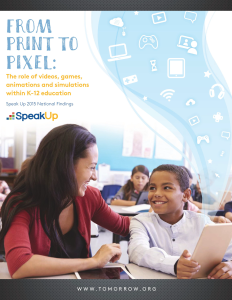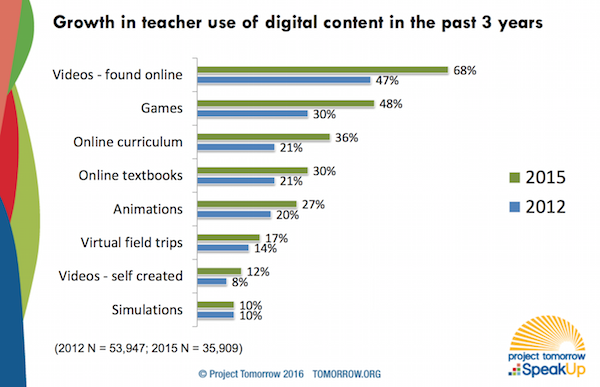Educational Games are growing in popularity with US teachers and students.

Almost half of teachers (48 percent) are using game-based environments in their classrooms like never before, an indication of a new awakening for digital learning to increase student achievement and teacher effectiveness, according to the annual Speak Up report from the Project Tomorrow, a nonprofit organization focused on education released on May 5, 2016.
It was noted that there is a significant increase of educational games in classrooms, i.e. from 34 percent in 2012.
The report "From Print to Pixel: The role of videos, games, animations and simulations within K-12 education” contains the results from the Speak Up survey in the fall of 2015, which depicts the viewpoints of more than 500,000 teachers, students, parents and administrators.

Nearly half of surveyed school and district administrators (48%) said they are implementing game-based learning to increase student achievement and teacher effectiveness.
School principals (84 percent) are almost unanimous in their belief that the effective use of technology within instruction is important for student success.
The biggest obstacle is the lack of teacher training on how to integrate digital content in schools. 27 percent said they were providing their teachers with instruction on game-based learning this year.
We full agree with what Julie Evans, CEO of Project Tomorrow said at a briefing on Capitol Hill "We need a different type of learning experience to prepare students for the future".
Educational games are here to stay since they can add value to the learning & teaching process. We should expect further adoption of visually engaging digital games both in mainstream teaching practices and in interventions for children with learning difficulties.
New type of games, such as the Kinems movement-based learning games, can enhance student learning as well as teachers' productivity.